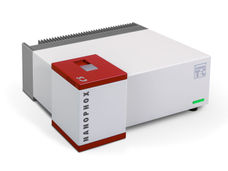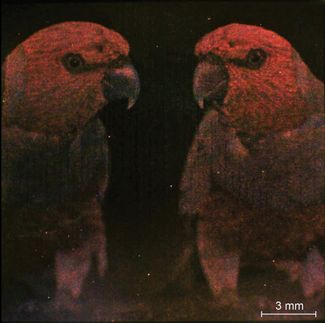Stickier adhesives discovered at Surrey
Physics researchers from the University of Surrey have discovered that adding a small amount of clay to adhesives makes them stick better. The clay was combined with soft plastic to make nanoparticles, which have a size that are more than 200 times the width of a human hair. When the nanoparticles were added at very low concentrations to normal adhesives, more energy was required to pull the adhesive off of surfaces. Applications for this type of adhesive include tapes, labels, and decals but also high performance areas such as in the aerospace and automobile industry.
The right arrangement of the clay in nanoparticles was needed to improve the adhesive's performance. If the clay was added to an adhesive without being included in a nanoparticle, there was not a large effect on the stickiness. Plastic nanoparticles without clay likewise were not effective. The researchers found that only the combination of the clay and the plastic in the nanoparticles used higher energies when the adhesive was being pulled off surfaces.
The research was carried out by Dr. Tao Wang, who recently completed his PhD degree, under the supervision of Professor Joe Keddie, in close collaboration with a group at the University of Warwick, led by Dr. Stefan Bon. Funding for Dr. Wang's study was provided by a University Research Scholarship and an Overseas Research Student award.
The results were reported in Soft Matter.
Most read news
Other news from the department science
These products might interest you

NANOPHOX CS by Sympatec
Particle size analysis in the nano range: Analyzing high concentrations with ease
Reliable results without time-consuming sample preparation

Eclipse by Wyatt Technology
FFF-MALS system for separation and characterization of macromolecules and nanoparticles
The latest and most innovative FFF system designed for highest usability, robustness and data quality

DynaPro Plate Reader III by Wyatt Technology
Screening of biopharmaceuticals and proteins with high-throughput dynamic light scattering (DLS)
Efficiently characterize your sample quality and stability from lead discovery to quality control

Get the chemical industry in your inbox
By submitting this form you agree that LUMITOS AG will send you the newsletter(s) selected above by email. Your data will not be passed on to third parties. Your data will be stored and processed in accordance with our data protection regulations. LUMITOS may contact you by email for the purpose of advertising or market and opinion surveys. You can revoke your consent at any time without giving reasons to LUMITOS AG, Ernst-Augustin-Str. 2, 12489 Berlin, Germany or by e-mail at revoke@lumitos.com with effect for the future. In addition, each email contains a link to unsubscribe from the corresponding newsletter.



























































